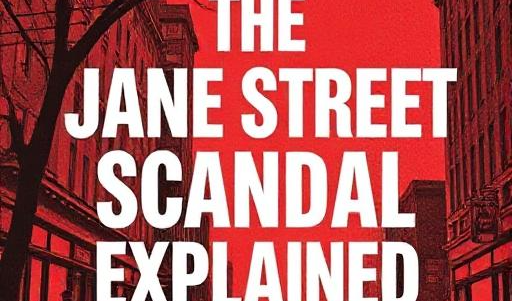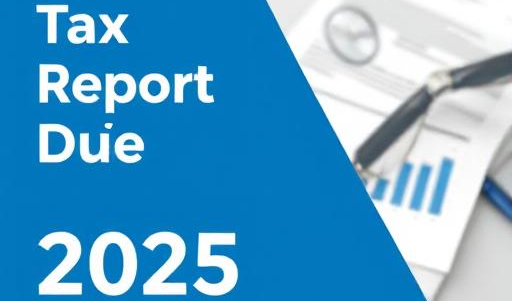The source discusses market manipulation by Jane Street, a high-frequency trading firm, in the Indian options market, specifically targeting the Bank Nifty index. It details how Jane Street's strategy of "pump, dump, and profit", involving simultaneous trades in the cash and derivatives markets, allegedly allowed them to profit significantly while disadvantaging retail traders. The video also explores a legal dispute between Jane Street and Millennium Management, which inadvertently exposed details of the manipulative strategy, and the subsequent investigation and actions taken by SEBI (Securities and Exchange Board of India). Finally, the source highlights the prevalence of options trading addiction among Indian retail investors, often influenced by financial influencers, and the inherent risks involved when competing against sophisticated firms like Jane Street.
How a ₹20 Billion Global Giant Allegedly Scammed Indian Option Traders out of ₹5,000 Crores: The Jane Street Scandal Explained!
Recently, India's market regulator, SEBI (Securities and Exchange Board of India), delivered significant news by accusing Jane Street, one of the world's most powerful trading companies, of market manipulation in India. The alleged manipulation resulted in Jane Street earning approximately ₹5,000 crores. This strategy, dubbed "Pump, Dump, and Profit," targeted India's highly volatile Bank Nifty index.
This revelation is particularly pertinent for the millions of Indians "addicted to option trading," often encouraged by financial influencers who portray it as "child's play" with promises of quick riches. However, as the story of Rahul, an Uber driver who lost ₹2.5 lakhs in 2024, illustrates, many retail traders are unknowingly up against highly sophisticated entities like Jane Street.
Who is Jane Street? A Quant Trading Powerhouse
Jane Street is a global trading company worth ₹20 billion, employing 2,500 people in over 40 countries. It operates as a "quant shop," leveraging computer algorithms to trade financial assets rapidly, often in milliseconds. Their core strategy involves identifying tiny price discrepancies – for example, buying a stock for ₹300 and immediately selling it for ₹301, earning a swift profit on large volumes.
To maintain this edge, Jane Street recruits top talent, particularly "top-rankers" from institutions like the IITs in India, offering hefty packages; one IIT-Madras student reportedly received a ₹4.5 crore offer. Their selective interview process involves complex logic puzzles, probability problems, and mental math questions designed to test reasoning under time constraints. The company also employs a unique "crazy retention policy" by forcing engineers to learn OCaml, a niche programming language, to limit their employability elsewhere and keep them "caged" within the firm.
In 2023, Jane Street earned $1 billion from the Indian options market, contributing to its $2 billion earnings from this market by 2024. For context, Jane Street's global net profit last year was around ₹1 lakh crore, a figure exceeding the combined profits of all Indian banks and companies.
How the Secret Strategy Was Exposed: The Legal Battle
Jane Street's confidential strategy came to light not initially through SEBI, but through a legal dispute between Jane Street and Millennium Management, a hedge fund empire founded by legendary investor Izzy Englander. In April 2024, Jane Street sued Millennium Management and two former employees, Douglas and Daniel, accusing them of stealing their proprietary algorithm. This algorithm, developed by Douglas and Daniel, was initially doubted but proved "so profitable" it was deemed a company secret.
During the lawsuit, Jane Street's lawyers were cautious, fearing that revealing the country where the strategy was applied would make it public. However, a mistake by Millennium Management's lawyers during legal proceedings revealed the country: India. It was disclosed that the strategy focused on the Indian options market, earning Jane Street $1 billion in 2023. Although the companies settled the case in December 2024, the details of the settlement were not made public.
SEBI's Investigation and Jane Street's Manipulation Strategy
The legal battle provided SEBI with a crucial glimpse into Jane Street's activities. SEBI launched a thorough investigation into Jane Street's trading activities from January 2023 to March 2025. According to SEBI's report, Jane Street employed a strategy involving "Intraday Index Manipulation" and "Extended Marking the Close".
The core of the Intraday Index Manipulation strategy involved two simultaneous actions:
- Manipulating the Cash Market: Jane Street's Indian entities, such as JSI Investments Pvt. Ltd., aggressively bought Bank Nifty Index stocks (e.g., HDFC Bank, Kotak Bank, SBI) in the morning. This large-volume buying artificially inflated the Bank Nifty Index.
- Profiting from the Derivatives Market: Concurrently, Jane Street's international offices, like Jane Street Asia Trading in Hong Kong, placed bets in the derivative market predicting that the Bank Nifty index would fall.
This allowed Jane Street to create a scenario where it could lose money in the cash market but earn significant profits in the options market by betting on the index's eventual decline. As retail traders, seeing the rising index, would buy call options, Jane Street would then "play its trick" by quickly selling the previously acquired stocks, causing the Bank Nifty index to fall and triggering their options market profits.
Why Bank Nifty?
Jane Street strategically chose Bank Nifty for several reasons:
- Popularity: It is highly popular among retail traders, with approximately 16 lakh people trading Bank Nifty options.
- Concentrated Influence: The index comprises only 12 bank stocks, with the top 5 banks contributing 80%. This concentration meant that buying or selling a large volume of just a few stocks could have a significant impact on the entire index, precisely what Jane Street desired.
On January 17, 2024, for instance, despite negative market sentiment for HDFC, Jane Street bought ₹4,500 crores worth of stocks and futures in competitor banks, causing the Bank Nifty Index to rise temporarily. By the end of the day, Jane Street lost ₹200 crores in the cash market but gained ₹4,800 crores in the options market, resulting in a net gain of ₹4,600 crores. SEBI stated that this type of trading, intended to artificially influence prices, is manipulative and harms retail traders.
The Impact on Retail Traders and SEBI's Response
India has seen an explosion in options trading, with the number of traders jumping from 7 lakh in 2019 to around 1 crore currently. The share of options trading in India is 99.6%, vastly exceeding the 70% in the US market, and derivative volumes are 400 times the cash market volume, compared to 5-15 times in other markets. A significant percentage of these traders are young, with 43% of individual investors aged 20-30 in 2019. Experts like Siddharth Bhaiya, Managing Director of an Investment Consultancy, have called derivatives "the biggest example of gambling in our country," referring to the National Stock Exchange as "India's Las Vegas".
SEBI formally forbade Jane Street from trading in February 2025. On July 11, Jane Street deposited the demanded ₹5,000 crores that it had earned from this manipulation. Ten days later, the ban was lifted.
While Jane Street's immediate problem is "solved," questions remain regarding the protection of retail traders. SEBI has acknowledged that 91% of retail traders lose money in derivatives. Despite efforts like risk meters, better surveillance, and public awareness campaigns, the influence of "finfluencers" continues to drive millions into risky option trading. This incident highlights the significant risks faced by individual investors when pitted against sophisticated, algorithm-driven high-frequency trading firms.









